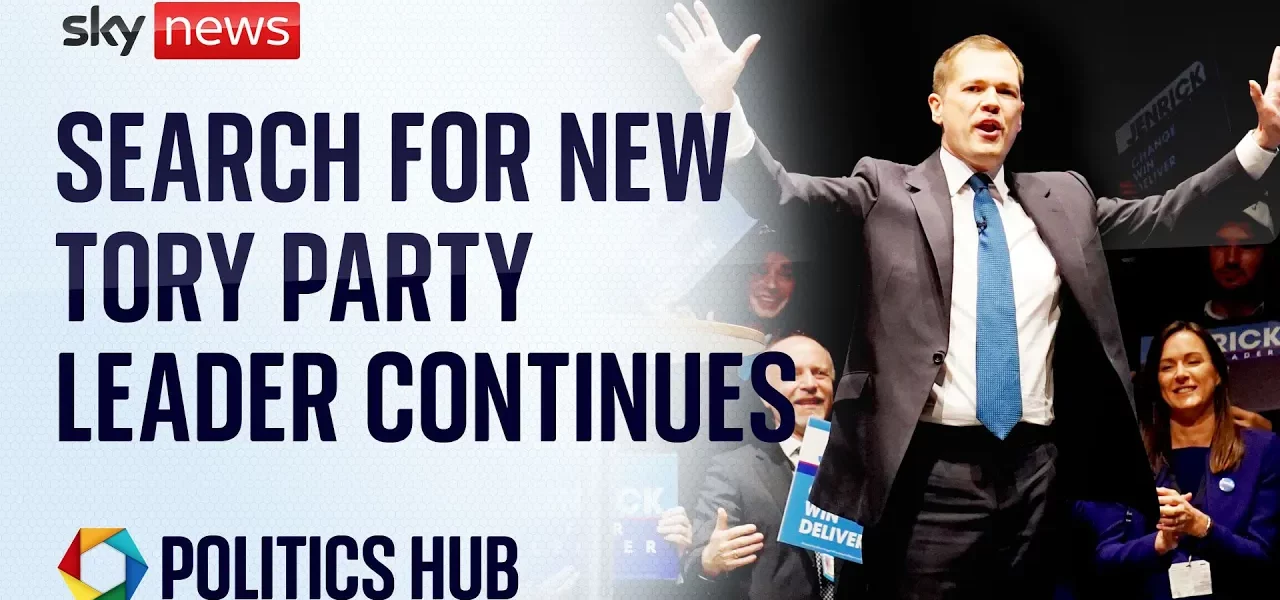Tory Party Conference: Navigating Leadership and Brexit Challenges

The Tory Party Conference this year presents a pivotal moment for the Conservative Party as it navigates through leadership uncertainties and the contentious issues surrounding Brexit. With calls for a departure from the European Convention on Human Rights, the discussions are set to shape the party’s future direction significantly.
Introduction to the Tory Party Conference
This year’s Tory Party Conference is unlike any other, marking a significant turning point for the Conservative Party. Having lost power, the party is in search of a new leader who can rally support and provide a clear direction. The atmosphere is charged with discussions surrounding Brexit and the implications of European law on British sovereignty. This conference not only serves as a platform for leadership candidates but also as a battleground for the future identity of the party.
Leadership Contenders and Their Positions
At the forefront of the leadership race is a strong contender known for being well-prepared and articulate. His stance on Brexit and immigration has garnered significant attention, particularly his view that the Conservative Party must sever ties with the European Convention on Human Rights (ECHR) to regain control over immigration policies.
The Case for Leaving the ECHR
During the conference, the frontrunner emphasized the urgency of leaving the ECHR, stating that failure to do so could lead to the party’s demise. His argument rests on several key points:
- Control Over Immigration: Advocates of leaving the ECHR argue that it hampers the UK’s ability to enforce its immigration laws effectively.
- National Sovereignty: The belief that European laws undermine British sovereignty is a central theme in the discussions.
- Party Survival: The assertion that the Conservative Party must take a definitive stance on these issues to remain relevant resonates with many party members.
Debate on Party Direction and Public Perception
As the conference unfolds, there is a growing concern among some members that focusing heavily on the ECHR may alienate potential voters. Critics within the party question whether the current leadership candidates are addressing the broader concerns of the British populace.
Public Opinion and Party Messaging
Several voices from within the party have raised alarms about the disconnect between party rhetoric and public sentiment:
- Voter Engagement: Many believe that discussing the ECHR may not resonate with the average voter, who is more concerned about pressing everyday issues.
- Need for Broader Topics: Critics argue that there should be a more comprehensive discourse on topics that matter to the electorate, such as the economy and social policies.
This divergence in focus highlights the tension within the party as it strives to balance internal cohesion and external appeal.
The Role of Media and Public Relations
Media coverage of the conference plays a critical role in shaping public perception of the Conservative Party. The framing of debates and discussions can influence how the party is viewed by both supporters and detractors.
Impact of Controversial Statements
Recent remarks by candidates regarding maternity pay and other social issues have sparked debates about the party’s values and priorities. These statements, though intended to spark discussion, may risk alienating key demographics:
- Women Voters: Controversial comments can lead to a backlash among female voters who may perceive the party as out of touch.
- Young Voters: Engaging younger voters requires addressing contemporary issues rather than historical debates.
Conclusion: The Future of the Conservative Party
The Tory Party Conference serves as a critical juncture for the Conservative Party, as it grapples with leadership challenges and the implications of Brexit. The discussions around leaving the ECHR and the party’s overall direction are not merely internal matters; they reflect broader societal concerns. Moving forward, it is essential for the party to address these issues comprehensively to regain public trust and support. As the conference continues, the party must strive to unite its members while appealing to the electorate at large.
For further insights on British politics and the upcoming challenges for the Conservative Party, feel free to explore our related articles on British Political Landscape and Future of Conservative Policies.
“`




